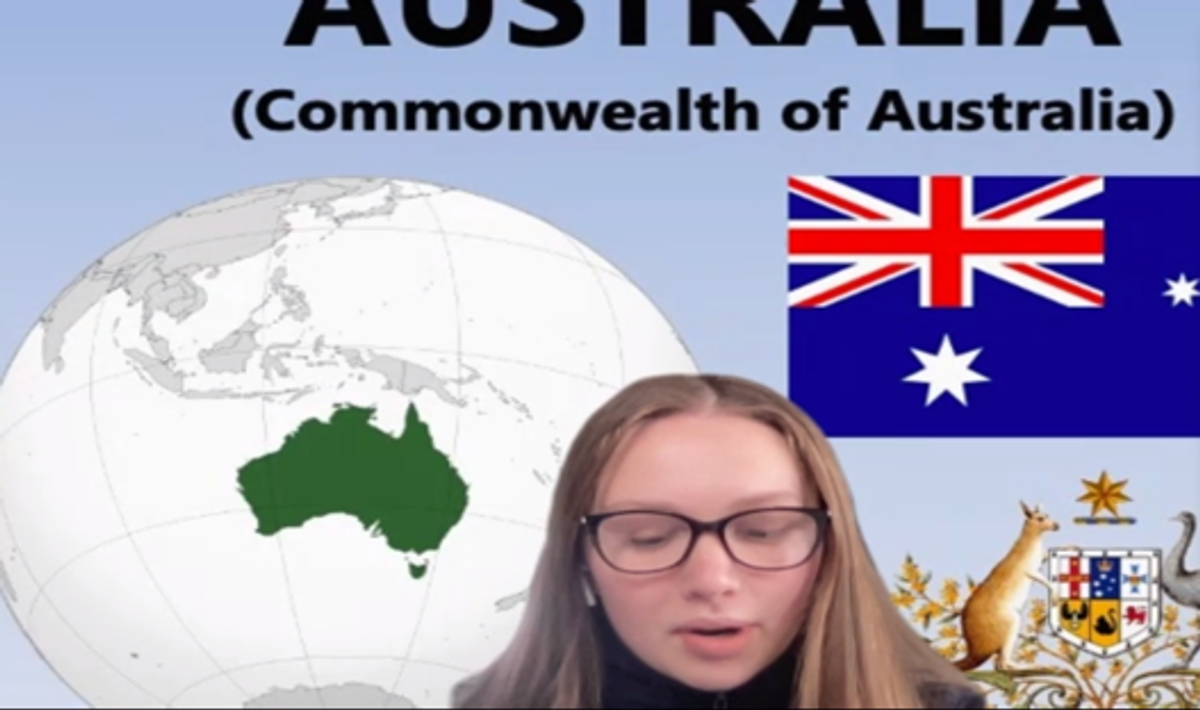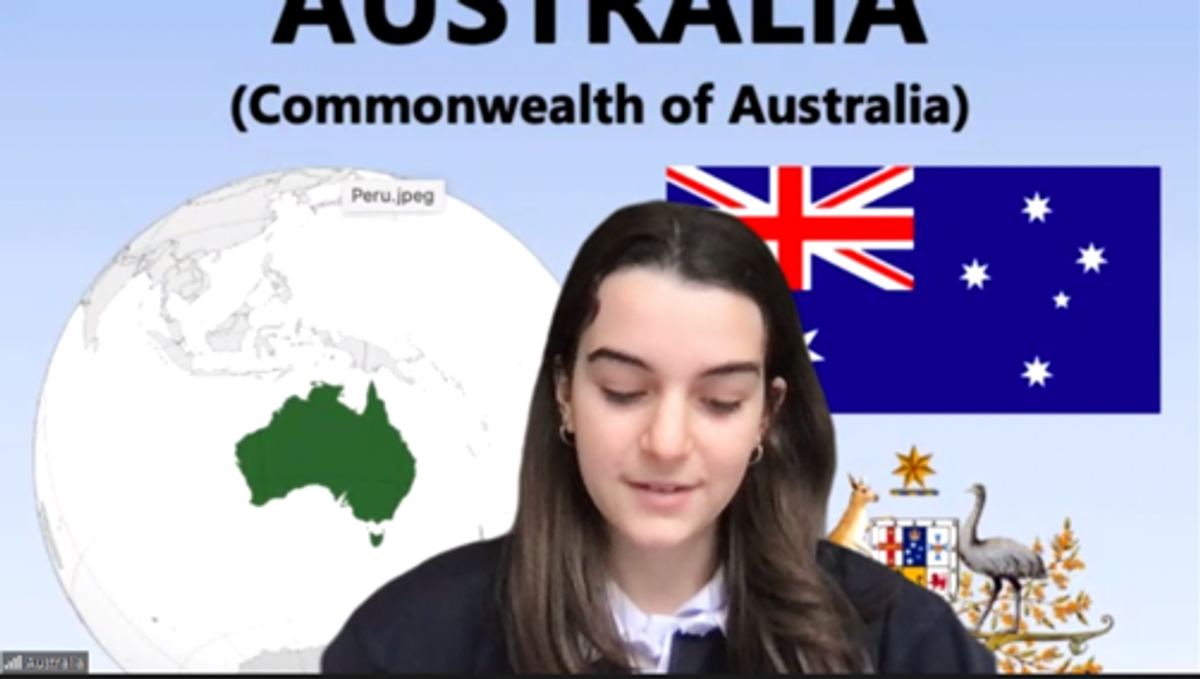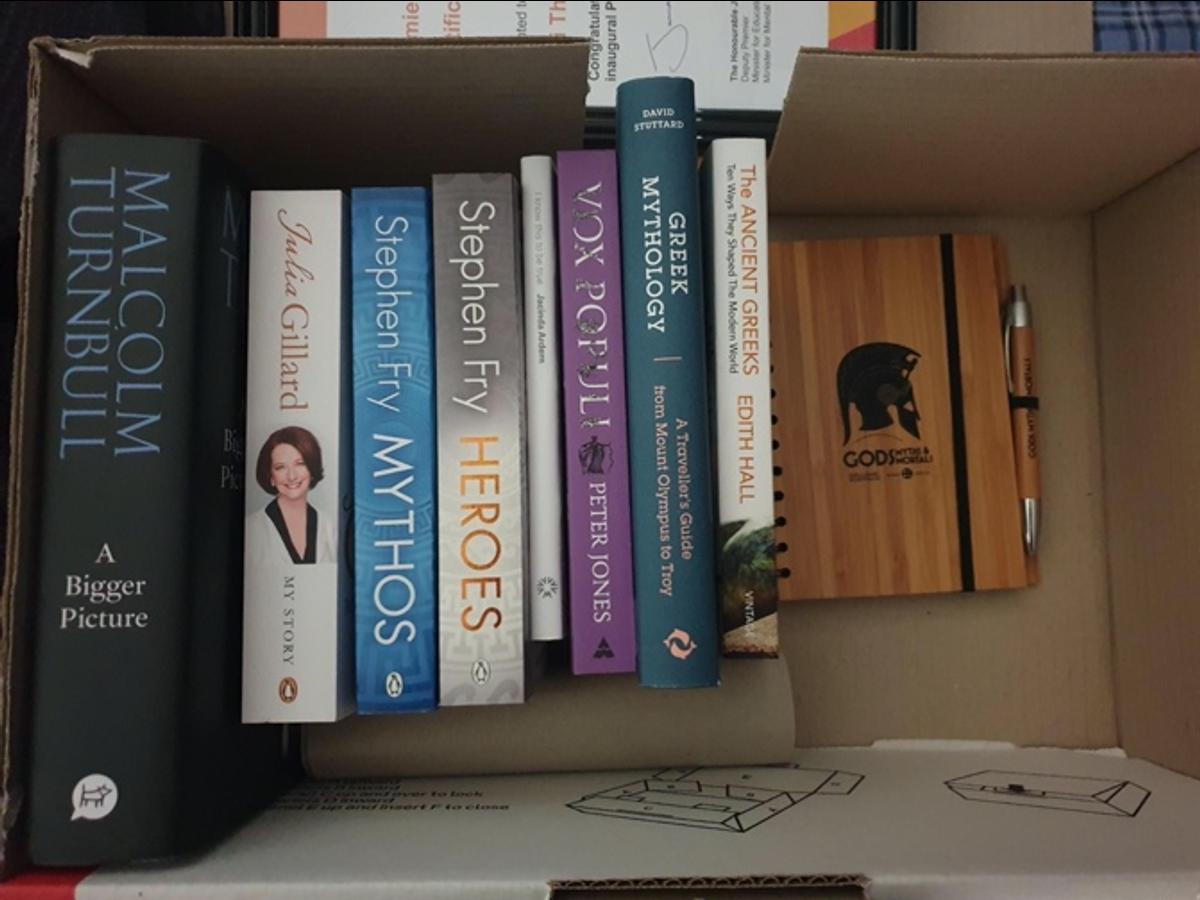Student
Leadership
Group

Student
Leadership
Group
On Thursday 26th of August 11 students represented Dromana College in a Virtual Model United Nations hosted by the Monash University Law School. Dromana College represented three nations: The Commonwealth of Australia, The French Republic, and The Republic of Peru. The students debated a draft resolution on the topic ‘Zero Hunger: Ending global poverty and addressing universal food security.’




Originally students were to attend Monash University’s Clayton campus, however due to the two most recent Lockdowns and increased restrictions, this event was changed to a virtual setting. This was a great shame as usually the students are given time to explore the university campus and in particular the law school. Even though the students had started their preparations before it was declared a virtual event, they committed themselves to continue with this opportunity. On top of their remote learning studies these students collaborated and researched during Google Meets at lunchtime and after school to ensure they were prepared and thoroughly researched their allotted country. The level of dedication by all students involved impressed both Mr Woolley and Ms Olsen greatly.
At the end of the day’s proceedings a resolution was passed with amendments to the preamble and operative committing nations to a greater effort towards reducing hunger and global poverty through increased food security.
The students involved were as follows:
The Commonwealth of Australia
Krsytabel Forward (Year 11)
Fin Williams (Year 11)
Amira Dika (Year 9)
Phoebe O’Toole (Year 8)
The French Republic
Lauren Baensch (Year 11)
Rani Thuan (Year 11)
Charlie Jones (Year 10)
Oli McGregor (Year 10)
The Republic of Peru
Lara Greenan (Year 10)
Hayden Marsh (Year 10)
Mac Wardlaw (Year 7)
A Model United Nations conference is an academic simulation of the United Nations where students play the role of delegates from different countries and attempt to solve real world issues with the policies and perspectives of their assigned country.
If you are keen to be involved in future Model United Nations please keep an eye on Compass for the next meeting announcement.
Ms Olsen & Mr Woolley
During the evening of Tuesday the 17th of August Charlie Parker (Year 12 Principal’s Liaison), Amira Dika (Year 9 Green Team Captain), Krystabel Forward (Year 11 Captain), Pixie Winters-Kerr (Year 7 McLear House Captain), Holly Bugeja (Year 10 Captain) and Phoebe O’Toole (Year 8 Captain) attended a Department of Education and Training funded School Governance online training session which was attended by other student leaders from across Melbourne.
The student leaders, after a long day of remote learning, participated online until approximately 6pm to understand the processes and procedures of a college council. The students represented Dromana College impressively and should be commended for their continued commitment to building their skills and capacities as leaders within our college. The facilitator was also very impressed with their input and interest in the program provided. It is very exciting that we now have a group of trained student leaders to participate in future college council meetings to provide student voice and perspective within the governance of the school.
Alex Woolley
Student Leadership and Community Engagement Coordinator
Rani Thuan, Year 11 Year Level Captain, was one of twenty successful recipients state wide of the prestigious 2020 Premier’s Spirit of Democracy Award. The annual Premier’s Spirit of Democracy (PSoD) Study Tour is for students in Years 9, 10 and 11. It explores the origins of democracy, building a deeper understanding of the influence that democracy has on contemporary Victorian and Australian society. Rani responded to the prompt, ‘Ancient democracy is often viewed as a system of government where the citizens of the city-state held the power. Is this an accurate observation of the democratic model in modern day Australia?’, and wrote an expository essay (included below) exploring this topic. Rani wrote his essay at the end of 2019 during the jump start period and submitted this before the commencement of the Christmas school holidays.
As a finalist, Rani was awarded an all-expenses paid two-week study tour of Greece with the other winning students. This trip was intended to take place in the Term 1 holidays of 2020 and in addition Rani was meant to meet the Premier The Hon. Daniel Andrews beforehand.


However, this travel opportunity unfortunately could not occur. Rani has now received an official acknowledgement of his achievement and prize pack. His essay has been published in an official book, and he received a signed certificate of recognition and a box full of books on politics. Rani said, ‘ while it didn't make up for Greece, it was pretty cool.’ Congratulations Rani on your efforts, you have made Dromana College very proud!
Alex Woolley
Student Leadership and Community Engagement Coordinator
Democracy is a political idea that has existed for over two thousand years since its development in ancient Athens. Democracy is defined as a system that allows every individual to have a voice. Australia’s political system partially resembles this idea as defined by Plato and Aristotle, however, it more acutely represents, in Plato’s words[1], a democratically elected autocratic government. The limited contribution from the demos[2] in decision making and the structural flaws in a representative democracy, that prevent it from being a true direct democracy due to its reliance on the ‘majority’ is significant. This partial democratic voice that occurs due to the reliance on the majority within Australian democracy, has always been present and successive local, state and federal governments have inadvertently and intentionally exploited this for their own power.
Australia doesn’t completely apply to this idea of direct democracy due to the fact that the political system we have is a representative democracy which resembles more of a democratically elected individual or party with the highest qualification, or an autocracy[3]. The primary reason for this is the scale upon which our democracy is built is too large to operate as a direct democracy yet allows for the effective employment of a representative democracy. This is quite an overbearing conflict of ideological definition and thus opens up the discussion to whether a representative democracy is actually a democracy in essence. Yes, there are democratic properties, such as electing an official or party to be in charge of your electorate or state or country. However, this is the only consistent element of democracy that exists within our current political system. With the rare exceptions of plebiscites, Australians do not have a voice in decisions made for them in parliament. This elimination of the power of the demos’ voice in the legislation process is a clear fracturing of the concept of democracy. Another extremely contentious concept of a representative democracy is the potential that an elected party may not actually reflect the majority of the demos. This is due to the election process that Australia currently has in which the number of seats or electorates that a party holds dictates who is in charge. This is a violation of the very nature of a democracy as defined by Plato and Aristotle, which relies on the conclusive decision by the majority of the demos. These are structural flaws that prevent Australia from holding accuracy to the ideas of Plato and Aristotle.
A prevalent issue with any democracy is equal voicing within the general populous and restrictions on those who can be part of the demos. The defining feature of a democracy is as it translates: people power. Every individual should have an equal input into the decision-making processes that take place within their state, whether the state listens to these required voices is up to the individual or party in charge. When the demos becomes restricted, even when it is seemingly necessary, the democracy within that political system is inaccurate. This is apparent in every non-theoretical democracy past and present. Within Australia, this is demonstrated by the age restriction on the voting system. This prevents people under the age of 18 from having an equal voice within Australia’s democracy. This enormous demographic can be observed throughout history as one of the most progressive age groups. There are alternatives to voting that Australia’s government does allow[4] but those who can vote still have access to these processes therefore establishing an imbalance in voice equality. Even these processes in Australia have had attempts of limitation and abolishment by politicians. Peter Dutton has been quite open about this stating that “protestors should have automatic jail times” and “should not be illegible for government provided financial aid”, attempting to supress a group which is already a form of minority. This is where I actively participate in my government. I attend protests and encourage others to do so, trying to utilise my limited voice as much as I can. This inequality in voice accentuates how Australia’s democracy is only partially accurate to that of ideas of the system provided by Plato and Aristotle.
The political ideology, democracy, that Australia attempts to follow is only emulated in partial accuracy with the ideas of Plato and Aristotle. This is prevalent through the structural flaws of our representative democracy and the inequality or lack of input from the demos. Australia has formed a political system with democratic properties; however, it does not meet Plato and Aristotle’s democracy.
[1] Plato and Aristotle defined democracy as a system that had contribution from the demos (Republic P, 2019).
[2] Demos is representative of individuals capable and allowed to vote.
[3] (Republic P, 2019)
[4] Examples of this include protesting and reaching out to an MP.